“Let me tell you about our year on the ward, fighting the Coronavirus; it’s been the most intense in my life”
Exactly one year after the beginning of the global emergency which has changed our lives, here is the testimony of a young professional, who works for the “Sette Laghi” health authority, Dr Letizia Traversi.
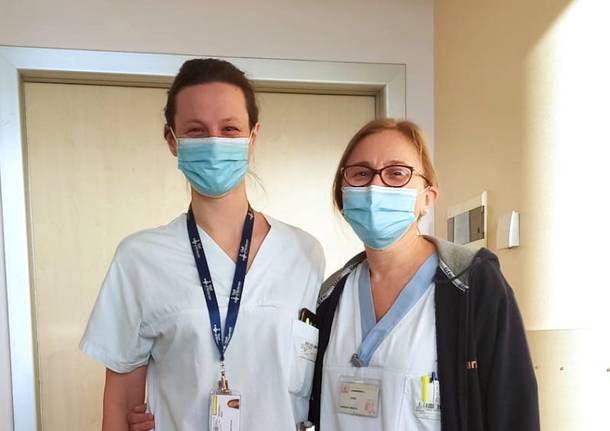
Exactly one year after the beginning of the global emergency which has changed our lives, here is the testimony of a young professional, with the “Sette Laghi” health authority, Dr Letizia Traversi, who has worked during these months, in the Pneumology Department of Varese’s “Circolo” Hospital. Her experience has been genuinely extreme, both physically and, above all, psychologically; Letizia dedicates her testimony to her colleagues, to the many people who, like her, have provided healthcare in this year of pandemic. Here is her testimony in full:
Today marks the end of a phase in my life that’s been so strange and intense, that if they’d told me about it a year ago, I wouldn’t have been believed it. Since March 2019, the lives of everyone have been so radically changed, in one way or another … the fact that I was at the end of my specialisation course in pulmonology at the hospital in Varese, further complicated things! I had tried to talk about it as little as possible on social media, but now that this door is closing I want to tell everybody what it was like. Maybe it’s from a desire to share an experience, or maybe it’s the need to exorcise the worst parts, or the desire to pay tribute to those who will continue to live it, now that I’m out of it, but I’ve decided to add my voice to the many who are speaking, not always on the matter.
I’d like to make something clear: the only experience I can share is what I have lived through. It seems trivial, but in every department, in every town, depending on the moment, personal, and professional experiences vary and are subjective. In May, after an initial wave that had almost spared our town, I said that we had basically worked, as we always do, albeit under more difficult conditions and with much more fear. Today, after a second wave which brought us to our knees, I could never say the same. Those who have paid the most in this pandemic have been the patients and their families, my thoughts and my greatest support go to them, but I’m lucky not to be able to speak for them. The only version of the story I have to tell, needless to say, is my own.
Things have changed so much and so often that it feels like a century has passed, from the first transformation of our department to COVID Pulmonology, last March, of which we well remember the fear, the bewilderment, the confusion. To make matters worse, we were terrified by the idea that we might be a source of infection for our loved ones, which led us to distance ourselves from them. Our loneliness and fear were amplified when we came into contact with the dramatic and inevitable fear of the patients we admitted. Then, in May, there was hope, the return to our usual patients, scrubs in boxes, masks, gloves and protective goggles always in place, but we could be satisfied.
In October, there was the breakdown: cases were increasing every day, there was the conversion again of our department again, and shortly after, of almost the whole hospital. Shifts and beds were doubled, there was a continuous turnover of patients because, for everyone that was on the mend, there was already another patient waiting to be admitted. There was the constant noise of oxygen at very high flow rates, of monitors, of the plastic fabric of protective clothing in the corridors. There were many, too many, helmets. Anaesthetists became a constant and essential presence, oxygen lines began to show signs of giving up, there was a sense of frustration at not being able to do more. Patients of all ages were united by fear, by a sense of isolation, by that anxious and imploring look when the uncomfortable plastic cylinder in which we placed hope for improvement came down on their heads.
We gave the final farewell to too many people, and we weren’t used to it, we weren’t ready. It’s true, most of them were elderly, over the age of 80, as we so often hear, almost to minimise the number of deaths that is constantly rising and that no longer seems to shock. But at 82, Giancarlo used to ride for miles on his racing bike. And Giovanni, who was over 80, until the beginning of the lockdown, had helped with the children in the oratory of his parish church, and had just wanted to go home to meet the new foster granddaughter, who was about to join the family. And then there was Mario, who had lived with his wife, and had never needed any help … They were elderly, but it has never been our job to determine how long a life is worth living, and many of them struggled to the last to remind us of this. We don’t remember the names of many of them, only the surnames. They deserved to die in the company of their loved ones, not with just the tough of a nurse or a faceless doctor, through two pairs of gloves, while the rest of the work calls and we can only stay for a few minutes. This damned virus took that right away from them, too. We will carry with us all these deaths, which have made us more fragile and at the same time more cynical, but the memory of many faces will perhaps disappear from our minds with time, and we can only console ourselves with the hope that we have done our best to ensure that everyone has the best death possible, the least loneliness possible.
As far as I am concerned, however, this was not the worst part: every day, after the ward round, we had to talk with relatives, on the phone. Good news led to relaxed, cheerful calls: a reduction in the oxygen therapy, an improvement in the tests, a transfer to rehabilitation … mundane news, which, in the past, would have been normal, but which have become small moments of joy and hope, relieved voices and thanks. But nothing brought me more dread than calls to the relatives of critical patients; having to tell a wife, a child, a parent, that things were not going well. That there might be a need for invasive therapies, in intensive care, which still wouldn’t guarantee survival. Or worse, that nothing more could be done. We had to find a balance between our desire to leave some hope and the need to prepare for the worst, between an annoying realism and the temptation to reassure and say that everything would be fine. A single misstep, a well-intentioned happy word, could lead to mistaken conclusions and even greater suffering. And all this over a cold and impersonal medium, like a telephone line, not knowing each other, not being able to shake hands, to interpret a look, to offer some comfort. Once again, solitude.
There were also many moments of joy: the patients’ leaving for home, rehabilitation or the lower-intensity wards. The pizzas offered by restaurant owners who fed us during the first few months. Those days when no one got worse, you managed to finish on time and things seemed a little better than the day before. The colleagues you got to know better and better, who you learned to trust and to share the difficulties of each day, a coffee, an unexpected laugh during the morning briefing. Little things that became more important during those months when the only human contact was inside the hospital.
To the “outside world”, we health workers were many things: initially heroes, then plague-spreaders, grim reapers, some even called us liars, insinuating that nothing they heard on the news was true, because “my mother works in the hospital and has never seen anything like this”. I’ve never agreed with the logic of the hero: it’s our job, alas, we’ve had to experience it in a more extreme way than expected. We’ve done it, like everyone else in this period, and we’ve suffered, like everyone else. But please don’t belittle our job with the cry of “you chose it, now don’t complain”; we chose to adopt a poodle, or at most, a Labrador, and we ended up with a huge Saint Bernard with a behavioural disorder and incontinence. Don’t blame us if we struggled, I’m sorry if we burdened you. And if you don’t believe what we’ve been telling you for months, well, I don’t think we can do anything about that.
We’re aware of our roles as a bridge between the sick and the outside world, and this has perhaps been the greatest change and the most difficult task. We’ve tried, and sometimes we’ve succeeded.
I’m now taking a different path from that of my colleagues, who continue (hopefully not for long) to fight the damned virus, with patients and their families. I hope I’ve given voice to their experience as well; if not, I know they’ll forgive me.
The fight continues, for everyone in different ways.
Dr Letizia Traversi
Pulmonologist at Varese Hospital
Translated by Mariachiara Bignoli, Elisabetta Ciocca, Edoardo Graziani
Reviewed by Prof. Rolf Cook
La community di VareseNews
Loro ne fanno già parte
Ultimi commenti
fracode su Varese ancora in piazza per la Palestina: "Rompiamo il silenzio contro il genocidio"
Giuseppe Mantica su Un futuro nella musica per il cardiologo dell’ospedale di Gallarate Giovanni Gaudio in pensione a fine anno
Bustocco-71 su Il pericoloso gioco alla stazione Ferno-Lonate: ragazzini attraversano i binari nel tunnel
PaoloFilterfree su Dall’abbandono alla rinascita: la lunga marcia dell’ex Aermacchi
Felice su Il pericoloso gioco alla stazione Ferno-Lonate: ragazzini attraversano i binari nel tunnel
lenny54 su È arrivato il gran giorno a Monteviasco: dopo sette anni di stop riparte la funivia






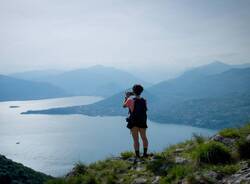
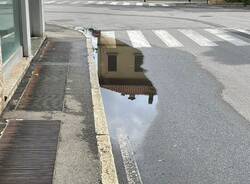
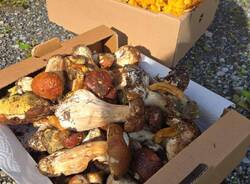
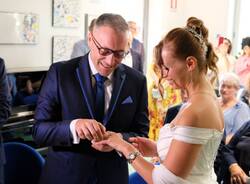

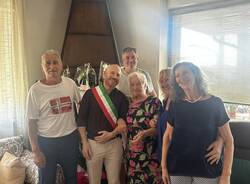

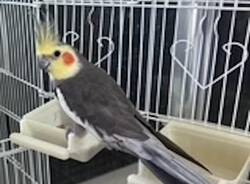
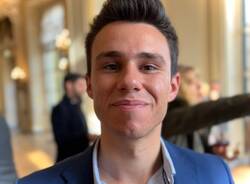

Accedi o registrati per commentare questo articolo.
L'email è richiesta ma non verrà mostrata ai visitatori. Il contenuto di questo commento esprime il pensiero dell'autore e non rappresenta la linea editoriale di VareseNews.it, che rimane autonoma e indipendente. I messaggi inclusi nei commenti non sono testi giornalistici, ma post inviati dai singoli lettori che possono essere automaticamente pubblicati senza filtro preventivo. I commenti che includano uno o più link a siti esterni verranno rimossi in automatico dal sistema.